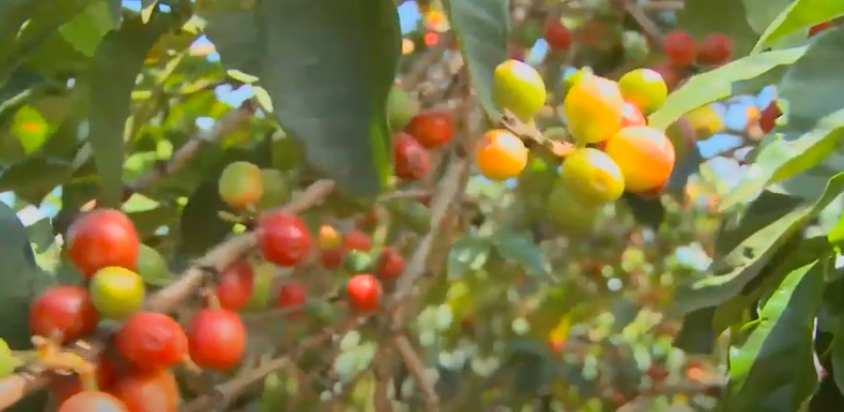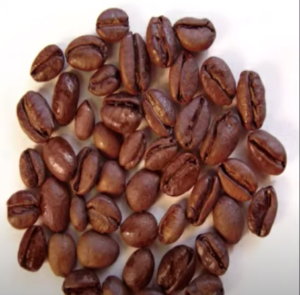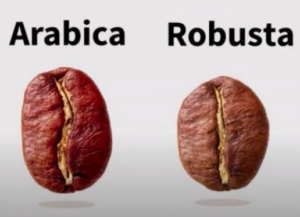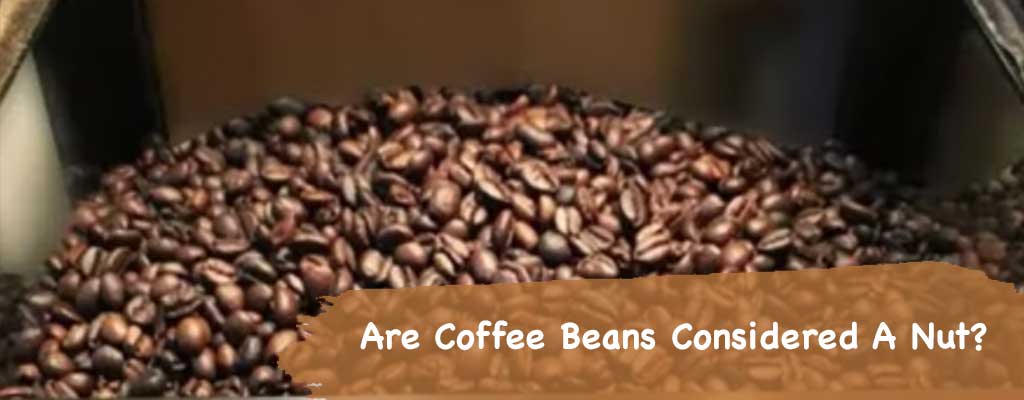Are Coffee Beans considered a nut? This is a question that has been met with some controversy, as one could confidently argue both for and against the notion. The main argument posed by those who say “yes” is that coffee beans are derived from the fruit of the Coffea plant, within which are contained two seeds that hold a similar nutritional profile to other groups of nuts.
However, there are some differences; while most nuts can be eaten raw, unprocessed coffee beans must first be roasted before they’re safe for consumption.
Is coffee a nut?

The answer is not a definite yes or no. It certainly contains similar beneficial compounds as other nuts, but it’s also processed in ways that differentiate it from them. Ultimately, whether you consider coffee beans to be a nut will depend on your own personal preference!
So while coffee beans may not technically qualify as a nut in the traditional sense, it is hard to deny the similar nutritional and culinary benefits that coffee beans provide. Ultimately, it’s up to you to decide!
So there you have it – coffee beans are not technically a nut, but they can certainly offer many of the same benefits as nuts do. The next time someone asks you, “Are Coffee Beans Considered A Nut?”, you can confidently explain why the answer is a bit more complicated than a simple yes or no.
At the end of the day, whether you consider coffee beans to be a nut will depend on your own personal opinion. For some, their culinary and nutritional benefits may outweigh any technicalities that would define them otherwise.
However, it’s important to keep in mind that there are still some differences between coffee beans and actual nuts, so make sure to do your research before making a decision!
Is coffee a bean or a nut?

Coffee beans are not technically a nut, but they do contain similar beneficial compounds as other types of nuts. While coffee beans must be roasted before they’re safe to consume, there are still many nutritional and culinary benefits that can be gained from them.
Ultimately, whether you consider coffee beans to be a nut or bean will depend on your own opinion. Just make sure to do your research before making a decision!
Related article:
What To Do With Old Coffee Beans? – 13 Clever Uses for Old Coffee Beans
What are coffee beans called?
Coffee beans are the seeds of the Coffea plant, which are processed and roasted before being used for consumption. They are often referred to as coffee “beans” due to their similar shape and size to other legumes, although they are technically not a bean.
The term “coffee bean” is most commonly used to refer to the seed of a coffee plant, although it may also be used to refer to the processed and roasted form of the bean.
Is coffee a fruit or nutis a coffee bean a nut
Coffee beans are not technically a nut, as they come from the fruit of the Coffea plant. While coffee beans may contain similar beneficial compounds as other types of nuts, there are still some distinct differences between them. Coffee beans must be roasted before they can be consumed safely, whereas many nuts can be eaten raw and unprocessed.
Where are coffee beans grown in the us

Coffee beans are grown in many parts of the US, including Hawaii, California, and Florida. Hawaii is one of the main producers of Kona Coffee, while California produces a wide variety of high-quality Arabica beans. Florida also has a thriving coffee bean industry and is home to some of the best Robusta beans in the country.
In addition to the US, coffee beans are also grown in countries around the world such as Colombia, Guatemala, and Ethiopia. Each of these countries produces unique flavors and aromas that make them some of the most sought-after coffees in the world.
Will eating coffee beans give you energy
Coffee beans can provide some energy, as they contain caffeine and other compounds that can help to stimulate the body. However, it is important to note that although coffee beans may give you a boost of energy, too much caffeine can lead to jitteriness, anxiety, and insomnia.
Therefore, it is important to consume coffee in moderation in order to enjoy its beneficial effects without overdoing it.
Ultimately, the best way to get an energy boost is through a healthy diet and regular exercise. Eating coffee beans can be a great addition to your daily routine, but make sure not to rely on them as your only source of energy.
What are coffee beans classified as
Coffee beans are classified as legumes, although they are sometimes referred to as coffee “beans” due to their similar shape and size. Legumes are a nutrient-rich food source that can provide a range of beneficial compounds, such as dietary fibers, minerals, and vitamins.
In general, most types of coffee beans are considered safe to consume and offer a variety of nutritional benefits. However, it’s important to keep in mind that there are still some differences between coffee beans and actual nuts, so make sure to do your research before making a decision!
Why are coffee beans called beans
Coffee beans are sometimes referred to as “beans” due to their similar shape and size to other legumes, although they are in fact not a bean. The term “coffee bean” is most commonly used to refer to the seed of a coffee plant, which is processed and roasted before being used for consumption.
Coffee beans have been used for centuries to create a variety of beverages and foods, such as espresso, cappuccino, and mocha. They are also widely used in baking and cooking, as they can impart a strong flavor and aroma to dishes. Therefore, it is not difficult to understand why coffee beans are often referred to as “beans”.
Are coffee beans considered nuts
Coffee beans are not technically a nut, as they come from the fruit of the Coffea plant. While coffee beans may contain similar beneficial compounds as other types of nuts, there are still some distinct differences between them. Coffee beans must be roasted before they can be consumed safely, whereas many nuts can be eaten raw and unprocessed.
Are coffee beans considered tree nuts
No, coffee beans are not considered tree nuts. Coffee beans come from the fruit of the Coffea plant and must be roasted before they can be consumed safely, whereas tree nuts are true nuts that can often be eaten raw or unprocessed. Therefore, coffee beans and tree nuts should not be confused as they have different nutritional profiles and harvesting methods.
Are coffee beans a nut
No, coffee beans are not a nut. Coffee beans come from the fruit of the Coffea plant and must be roasted before they can be consumed safely, whereas tree nuts are true nuts that can often be eaten raw or unprocessed. Therefore, coffee beans and tree nuts should not be confused as they have different nutritional profiles and harvesting methods.
Are coffee beans good for you
Yes, coffee beans can be a healthy addition to your diet when consumed in moderation. Coffee beans contain beneficial compounds such as antioxidants and caffeine that may help reduce the risk of certain diseases, including cancer, Alzheimer’s, and Parkinson’s disease.
Are coffee beans considered a nut candy
No, coffee beans are not considered a nut candy. Coffee beans come from the fruit of the Coffea plant and must be roasted before they can be consumed safely, whereas most nut candies use either peanuts or tree nuts as their main ingredient.
Are coffee beans considered a nut crop
No, coffee beans are not considered a nut crop. While they may look similar in shape and size to other types of nuts, they come from the fruit of the Coffea plant and must be roasted before they can be consumed safely. Therefore, it is important to keep in mind that while coffee beans are sometimes referred to as “beans”, they are not considered a nut crop and should not be confused with other types of nuts.
Are coffee beans healthy
Yes, coffee beans can be a healthy addition to your diet when consumed in moderation. Coffee beans contain beneficial compounds such as antioxidants and caffeine that may help reduce the risk of certain diseases, including cancer, Alzheimer’s, and Parkinson’s disease. Additionally, they contain vitamins and minerals such as vitamin B, potassium, and magnesium that can help support your overall health.
However, it is important to remember that too much caffeine can have adverse effects, so it is best to consume coffee in moderation and not rely on it as your only source of energy. Additionally, some people may be sensitive or even allergic to certain compounds found in coffee beans, so it is important to talk to your doctor before adding them to your diet.
Are coffee beans a nut tree
No, coffee beans are not considered a nut tree. Coffee beans come from the fruit of the Coffea plant and must be roasted before they can be consumed safely. Trees that produce true nuts, such as almond trees or walnut trees, are classified differently than coffee plants and should not be confused with one another.
Are coffee beans a type of nut
No, coffee beans are not a type of nut. Coffee beans come from the fruit of the Coffea plant and must be roasted before they can be consumed safely, whereas tree nuts are true nuts that can often be eaten raw or unprocessed. Therefore, coffee beans and tree nuts should not be confused as they have different nutritional profiles and harvesting methods.
Are coffee beans a nut allergy
No, coffee beans are not considered a nut allergy. Coffee beans come from the fruit of the Coffea plant and must be roasted before they can be consumed safely, whereas allergies to tree nuts are caused by an immune reaction to certain proteins found in tree nuts that have been eaten or touched. Therefore, it is important to remember that coffee beans are not related to nut allergies and should not be confused as such.
Are coffee beans a nut
No, coffee beans are not considered a nut. Coffee beans come from the fruit of the Coffea plant and must be roasted before they can be consumed safely, whereas true nuts are edible seeds that come from trees or shrubs. Therefore, it is important to keep in mind that while coffee beans are sometimes referred to as “beans”, they are not considered a nut and should not be confused with other types of nuts.
Are coffee beans healthy for diabetics
Yes, coffee beans can be a healthy addition to the diet of an individual with diabetes when consumed in moderation.
How to Flavor Coffee Beans
One way to add flavor to your coffee beans is by roasting them with different spices or ingredients. For example, you can try adding cinnamon, nutmeg, cardamom, allspice, cloves or even dried fruit like raisins to the beans before roasting. Additionally, you can also use flavored oils such as vanilla or hazelnut oil to infuse the beans with added flavor. Another option is to purchase flavored coffee beans, which are already roasted and infused with different flavors such as chocolate or caramel. Lastly, you can also try adding syrups or extracts after the brewing process, such as vanilla extract or almond extract.
FAQs
Are coffee beans gluten free?
Yes, coffee beans are naturally gluten-free. Gluten is a protein found in certain grains, such as wheat and rye, that can cause adverse reactions in those with celiac disease or gluten sensitivities. Therefore, coffee beans are safe for consumption for those with gluten sensitivities. However, it is important to note that some flavored coffees may contain added flavors or ingredients that do contain gluten, so those with gluten sensitivities should check the labels of their favorite coffees before purchasing.
Are coffee beans a nut?
No, coffee beans are not considered a nut. Coffee beans come from the fruit of the Coffea plant and must be roasted before they can be consumed safely, whereas true nuts are edible seeds that come from trees or shrubs. Therefore, it is important to keep in mind that while coffee beans are sometimes referred to as “beans”, they are not considered a nut and should not be confused with other types of nuts.
Are coffee beans good for weight loss?
Coffee can be part of a balanced diet if consumed in moderation. While the caffeine content of coffee can help to increase energy levels and potentially boost metabolism, it is important to note that drinking excess amounts of coffee does not guarantee weight loss. Additionally, adding unhealthy additives such as sugar or creamers can undermine any potential health benefits from consuming coffee. Therefore, when trying to lose weight, individuals should focus on consuming a healthy diet and exercising regularly, rather than relying on coffee as an effective weight loss tool.
Are coffee beans vegan?
Yes, coffee beans are typically considered vegan-friendly as they come from the fruit of the Coffea plant and do not contain any animal products or by-products. However, it is important to note that some flavored coffees may contain added flavors or ingredients that are not vegan-friendly, so those following a strict vegan diet should check the labels of their favorite coffees before purchasing.
Are coffee beans an antioxidant?
Yes, coffee beans naturally contain antioxidants which can help protect the body from damage caused by free radicals. Additionally, certain compounds found in coffee, such as chlorogenic acid and quinic acid, may also provide potential health benefits. Therefore, consuming coffee beans can be a great way to increase one’s intake of antioxidants.
Are coffee beans good for diabetics?
Yes, coffee beans can be a healthy addition to the diet of an individual with diabetes when consumed in moderation. Caffeine has been found to have a positive effect on blood sugar levels, although it is important to note that adding sugar or creamers can negate any potential health benefits from consuming coffee.
Are coffee beans acidic?
Yes, coffee beans are naturally acidic and can range from light to dark roast depending on the desired flavor profile. Darker roasts typically contain more acidity than lighter roasts, which can add an extra layer of flavor to a cup of coffee. Therefore, individuals should choose their ideal strength and flavor profile when selecting their coffee beans.
Are coffee beans gluten free?
Yes, coffee beans are naturally gluten free as they come from the fruit of the Coffea plant and do not contain any gluten proteins. However, it is important to note that some flavored coffees may contain added ingredients or flavors
Conclusion
All in all, it’s clear that the answer to the question “Are coffee beans considered a nut?” is yes but with certain provisos. Coffee beans are botanically classified as seeds, as they arise from soft-shelled fruits known as cherries. True nuts, in contrast, grow from hard-shelled fruits known as drupes. This distinction distinguishes coffee beans from other types of nuts, like almonds and walnuts.
Beyond that dispute about their taxonomy lies the reality that coffee beans can work equally well as a snack or an addition to recipes to give them an added crunch and subtle hint of bitter taste. So why not experiment with adding some to your next dish or even munching on them during snack time? The health benefits make it worth a try! We’d love to hear back about what worked for you – share your experience with us!
I’m Jeff Olson, and I love coffee. In fact, I’m something of a professional about coffee. I own and operate coffeemachinenes.com, one of the web’s top resources for everything coffee-related. I’m also an avid home barista, and enjoy experimenting with different brewing methods and flavor profiles. When I’m not nerding out about all things coffee, you can find me playing guitar or spending time with my wife and kids.

